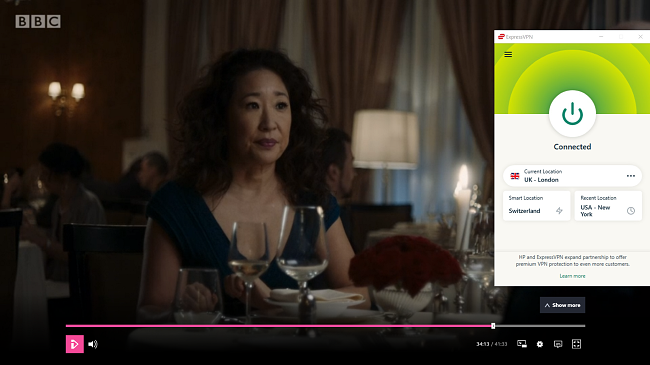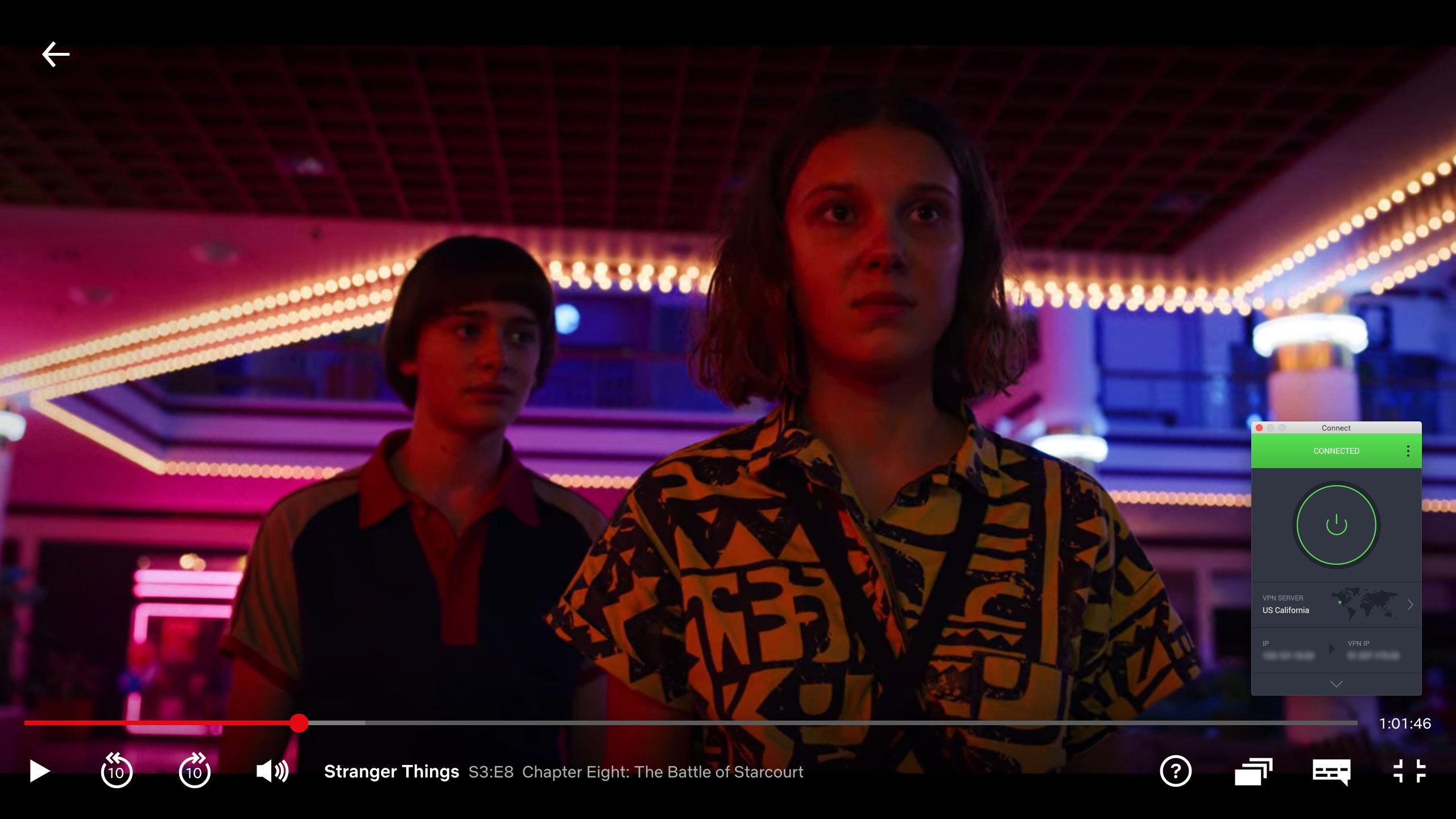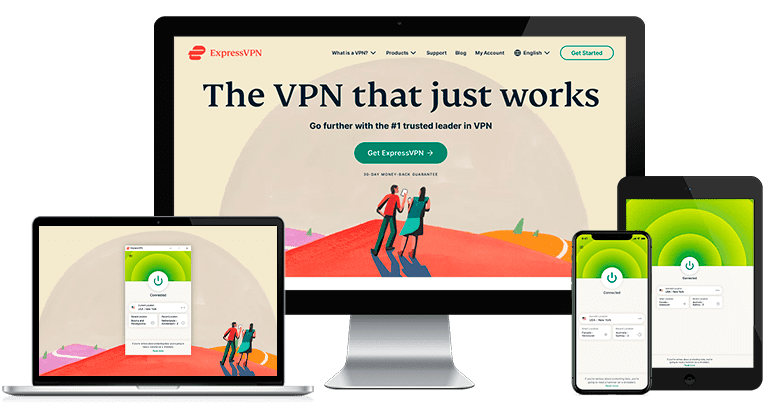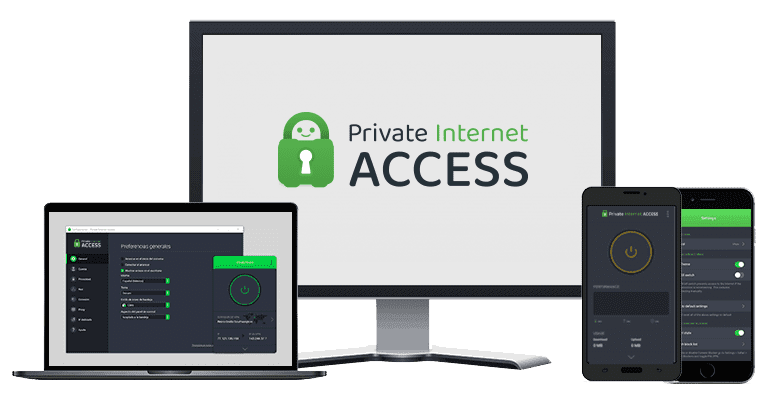7 Common VPN Problems and How to Fix Them (Tested 2024)
Whether it’s your VPN not connecting, crashing, or showing a different location — VPN problems aren’t just annoying, they could endanger your online safety as well.
You have to look for a solution immediately when VPNs fail, or you could leave yourself open to hackers and cybercriminals looking for easy easy targets. Luckily, there are 2 ways to get back online quickly and securely.
You can use premium VPNs like ExpressVPN, as they put in more effort to make sure problems like this don’t arise. Or, you can also troubleshoot by yourself. I’ve highlighted the 7 most common VPN problems and provided solutions for how to solve them.
Note: You’ll run into fewer problems when you use a top VPN like ExpressVPN. It offers a 30-day money-back guarantee, so you can try out ExpressVPN’s premium features risk-free. If you’re not satisfied with it, you can get a full refund.
7 Most Common VPNs Problems And Solutions
1. VPN Doesn’t Connect
If you’re trying to watch American Netflix but your VPN won’t connect then you’ve encountered the most common problem. Failure to connect can occur due to a number of reasons, ranging from your device to the VPN provider or their app.
Re-enter Login Details
Don’t dismiss the simplest mistakes, like using the wrong login details. Many VPN clients allow you to log in with an inactive account, but you won’t be able to connect to a server.
If you find yourself in this situation, then try re-entering your username and password more carefully. If it still doesn’t work try resetting your password. Otherwise, you need to renew your account.
Check Firewall Settings
If you are running a firewall you need to check if it’s interfering with your VPN connection. A firewall scans your incoming and outgoing traffic, and if it sees anything potentially dangerous, it can prevent transmission. Try temporarily disabling your firewall and try reconnecting to see if it has anything to do with your connection issues.
If it’s the problem, you’ll need to open some outgoing ports, which could change depending on the Firewall and the VPN software. You can also check your VPN’s documentation as most providers recommend their preferred ports for connection.
Test Internet Connectivity
You need to make sure that you can connect to the internet without the VPN, and that the server you are trying to connect to is online. You can do this by first disconnecting from your VPN, then accessing a web page on your device’s browser. If it still does not respond, try rebooting your router – the problem could be with your ISP.
You could also look up your VPN’s official website by logging in, then try connecting to the target server to confirm if it is online. Occasionally, a VPN server could be down, due to scheduled or emergency maintenance. If the specific server is offline, connect to another server or wait a while for the server to come back online.
Change Network
If your VPN client isn’t connecting, it could also be an issue with your VPN provider. In this case, try connecting your device to a different network, like the nearest public Wi-Fi – be it in an institution, restaurant, or a friend’s hotspot.
If your VPN client responds well the problem could be with your home internet. In this case, you can try checking your internet settings to figure out what could be keeping you from accessing the VPN network.
2. VPN Crashes
VPN clients are prone to occasionally crashing, just like any other software. However, if the crashes persist, you need to take one of these actions:
Update Your VPN
VPN providers are always competing against each other for the best service delivery. They therefore constantly release new updates or more improved software versions to their users. Older versions may have some bugs, and therefore I encourage you to always update your VPN client software.
You can do this by regularly checking your software version and downloading new updates from the official site or your VPN client.
Close Other Apps
Frequent crashing could also be an issue with the capability of your device to run multiple related apps at a time. In this case, you can try closing all other running apps that you don’t need then check if your VPN client will work seamlessly.
Restart Your Device
Rebooting your device can sometimes solve all your crash and connection issues. Always try restarting your device to ensure your computer’s operations are back to normal. This will include allowing for updates to properly install, as well as killing any annoying processes.
Uninstall/Reinstalling the VPN client
If all the actions above don’t work, go ahead and uninstall and reinstall the VPN client. Make sure you download the latest version from the official website.
3. VPN Keeps Disconnecting
A VPN client that keeps disconnecting after successfully connecting can be bothersome, and a huge privacy/security threat. If this behavior is repetitive, here is what you should do:
Try a Different VPN Server
Every once in a while, your preferred VPN server could be working poorly, and this will make your VPN client disconnect constantly. To check if this is the case, connect to a different server, preferably one near you.
Disable Your Firewall
Firewalls form essential security barriers, however, they can occasionally affect the connectivity of VPN clients. Most of them will tend to slow down your internet connection and cause your VPN to disconnect.
You can temporarily disable your firewall to see if it interferes with your VPN client. Most firewalls can be disabled from their settings page. Remember to turn your firewall back on before you start browsing the internet again.
Connect Via Ethernet
Although it is highly unlikely, your wireless network router could be the main cause of your connection issues. In this case, consider connecting directly to the router using an Ethernet cable.
Additionally, this issue is mostly seen when there is a router getting an uplink from another on the same network – causing a ‘double NAT’ situation. In this case, you will need to activate the bridge mode, allowing the two routers to integrate with each other. To successfully perform this action, you will need to go through the router’s official documentation.
Change DNS Settings
If your VPN client keeps disconnecting, it could also be an issue with the DNS server you are using. Often, VPNs supply their own DNS services when connecting, but that does not mean it cannot mess with your connection. Different VPN providers have varied requirements for altering DNS server settings including the common ‘Only use VPN DNS servers when connected’.
To solve your connectivity issues, you will need to disable this option. While it may leave your network prone to attacks, using your device’s own DNS servers will help you keep a strong connection.
4. Can’t Establish Tunnel Connection
There are 2 known possibilities as to why your VPN client will fail to establish a tunnel connection to the servers. The first is where your router is always performing IP packet filtering, or an issue with the proxy server found between the VPN client and the server.
Disable IP Packet Filtering
Mostly, IP packet filtering will make it difficult to establish IP tunnel traffic. In this case, you will need to check the VPN client or the server, as well as any other device on the network for IP packet filters. To do this:
- Go to the advanced settings of your target device’s TCP/IP properties page
- Choose filtering, then navigate to properties
- Disable IP Packet Filtering and test if this fixes your VPN problem
Change the Security Protocol
If the proxy server sends packets to the server directly, rather than from the VPN client, then a NAT translation occurs in the traffic.
This occurrence will occasionally bar tunnel connections from being established. If you are connected via OpenVPN, try connecting over L2TP/IPSec. Alternatively, if you are already using the L2TP protocol, try using OpenVPN.
Additionally, while it may not be entirely ideal, I also encourage you to try PPTP (Point-to-Point Tunneling Protocol) and see if the problem is solved.
5. Can’t Access Streaming Services
It’s a big issue when VPNs can’t access your favorite streaming platforms like Netflix, but there are things you can do to fix this.
Use Incognito Mode
When you see a proxy problem on Netflix or other platforms, use incognito mode and try again. This may remove any remaining location identifiers and cookies from your device.
Websites often set tracking cookies in your device’s memory in order to learn more about your browsing habits. Netflix will be able to detect if your IP address does not match your location saved in your cookies, which will result in a block.
When you browse in incognito mode, cookies, your history, and the information you enter aren’t saved, which means there won’t be remaining cookies showing your true location to streaming platforms.
Erase Your Cache & Cookies
Erasing your cache and cookies will clear cookies and location identifiers, so you should be able to access streaming platforms. Here’s how you can do this:
- Click the three dots in the upper right of your browser
- Locate the clear browsing data option in the settings menu
- Choose cookies and other site data as well as cached images and files
- Clear cookies after making sure the time range is set to “All Time”
Connect to a Different Server
Server overcrowding and long distance are both factors that may negatively affect the server’s performance. Try switching to a server that is physically closer to you and less busy when your VPN doesn’t work.
Contact Customer Support
If nothing works, contact customer support and ask for help. The best VPNs on the market offer 24/7 live chat support. If live chat isn’t an option, there should still be an email form or detailed guides to help you troubleshoot.
6. VPN Speeds Are Too Slow
This could be caused by a variety of reasons, whether it’s an issue with your VPN or something else. Here are some steps to take when you encounter this:
Connect to a Different Server
If too many people are using the same server, the server capacity could be overloaded, and the speed goes down. A server with a lighter load makes sure that it can handle the traffic normally, giving you a faster speed.
If the server’s too far away from you, the web traffic has to travel a long way to establish a connection. So, try a few servers located closer to your physical location, and you might find one with a decent speed.
Switch to a Physical or Virtual Server
Depending on your situation, changing from physical to virtual or vice versa can help give your speed a boost. It’s also easy for virtual servers’ speed to take a hit when it’s overloaded, so you have to assess your situation and act accordingly for the best speed.
Try a Different Protocol
VPN protocols allow you to customize your experience according to your needs. The default protocol for many VPNs is OpenVPN, which is a great all-around protocol that offers great speed and security. However, if you want to prioritize speed and are fine with not having the absolute best privacy protection, you can go for WireGuard.
Some VPNs even have their own protocols. For example, you can try ExpressVPN’s Lightway Protocol that’s optimized for speed, and it’s been audited to prove that it offers great security too.
Close Background Apps
If you have too many tabs open at the same time or lots of different apps running in the background, they may be slowing down your internet speed. By closing those tabs and apps you’re not using, you might see a boost in your internet speed.
Connect to a Wired Connection
WiFi at home is often shared by many devices at the same time. There could be someone gaming on their phone, streaming on Netflix, or working, all while using the same wireless connection. This could cause your WiFi to become unstable, resulting in a slower speed. Try switching to a wired connection so you don’t have to compete for bandwidth.
7. My Server is in The Wrong Location
Check for IP Leak
If your IP address is leaked it will reveal your real location even when you’re using a VPN to mask it, which is why it shows that you’re in the wrong location. It could also be risky, as your true IP address is on the web. If a hacker gets hold of it, it will be a huge risk to your online privacy.
The first thing to do is to conduct an IP leak test. If it’s an IPv4 leak it means that the connection failed. You can reconnect to the VPN server, then run the test again. If it’s still leaking after that, then you should change a VPN provider because this means yours is not working properly.
If it’s an IPv6 leak, disable it by doing the following:
- Open Network & Internet settings by right-clicking on the Network or WiFi icon in your system tray.
- Click Change adapter options.
- You’ll see all the adapters on your computer. Find the one you’re using to access the internet. Right-click it and select Properties.
- On the Network tab, a new window will appear. Scroll down until you see Internet Protocol Version 6 (TCP/IPv6) option. Uncheck the box, then click OK and restart your computer.
- After the restart, do another leak test.
Change to a P2P Server
Your connection may have been rerouted because there’s P2P (Peer-to-Peer) traffic on your device and the server you chose doesn’t support it. If that’s the case, change to a server that supports P2P, and your problem might be solved.
Turn Off Other VPNs
If you have many VPNs, it might be the cause for you. Many VPNs start automatically upon startup to keep you safe and anonymous from the beginning. If one is running in the back while you try to use another, then it might be the other VPN that’s causing the problem. Simply turn the extra VPN off and see if it fixes your problem.
What If My Issue Is Not Listed Here?
Contact customer support. Most VPNs offer 24/7 customer service via live chat or email, so you should be able to get help if you reach out. If yours doesn’t offer it and you’re having issues you can’t solve yourself, you switch to a VPN like ExpressVPN that offers stellar customer support.
I never waited more than 3 minutes for a reply on ExpressVPN’s live chat, and each answer was super useful. Its email replies are fast too. I sent 3 emails, and I got a reply in less than 30 minutes every time.
Most Reliable VPNs to Use in 2024
1. ExpressVPN — The Most Reliable VPN for Streaming Access & Security
Key Features:
- 3,000+ servers in over 105 countries
- Military-grade 256-bit encryption, TrustedServer technology, Perfect Forward Secrecy, and more
- Offers 24/7 support via live chat and email
- Connect up to 8 devices simultaneously
- 30-day money-back guarantee on every subscription
ExpressVPN is the most reliable VPN for staying safe and anonymous online because it provides constant fast speeds, powerful security features, and the ability to access geo-restricted sites. Thanks to its Lightway Protocol, ExpressVPN remained fast throughout testing, even while streaming. This means the chances of it having connection and speed issues are lower.

During testing, ExpressVPN handled HD streaming without buffering on many international streaming platforms, including:
| Netflix | Hulu | BBC iPlayer | Disney+ |
| Amazon Prime | Vudu | Sky TV, Sky Sports | HBO Go, HBO Now, HBO Max |
ExpressVPN also provides excellent protection for its users, allowing you to stay secure online. I did IP leak tests, and sure enough, there were no leaks, so you won’t have to worry about these problems either. Additionally, ExpressVPN is also equipped with many security and privacy features, like:
- Military-grade 256-bit encryption to protect your data
- A zero-logs policy to safeguard your privacy
- An automatic kill switch that cuts off the internet to protect your data from being leaked
- Perfect Forward Secrecy, which gives you a new encryption key every time you do anything online, making it ultra difficult for hackers to breach the security
You can try ExpressVPN without risks, as every subscription comes with a 30-day money-back guarantee. If you’re not satisfied with it, you can get a full refund. I contacted customer support with live chat, and the agent approved my request quickly. I got my money back a few days later.
2024 Update! ExpressVPN has dropped prices for a limited time to a crazy $6.67 per month for the 1-year plan + 3 months free (you can save up to 49%)! This is a limited offer so be sure to grab it now before it's gone. See more information on this offer here.
2. CyberGhost — Avoid Slow Speed With Multiple IP Addresses to Choose From
Key Features:
- 11,676+ servers in more than 100 countries
- Uses military-grade encryption, a kill switch, and no-logs servers to guard your privacy
- Get support with 24/7 live chat and extensive FAQs
- Allows 7 simultaneous device connections
- Offers a 45-day money-back guarantee
CyberGhost is also a reliable VPN that rarely has issues. CyberGhost has one of the largest global server networks. This means problems caused by server overcrowding will less likely happen, as there are plenty of IP addresses for every user.
Since it has servers in almost every corner of the world, anyone can stream their favorite show anywhere with CyberGhost.

During testing, CyberGhost maintained a good speed during streaming. It allowed bufferless, HD video watching on many major streaming platforms, like:
| Netflix | Hulu | BBC iPlayer | Disney+ |
| Amazon Prime | CBS All Access, Paramount Plus | Showtime | HBO Go, HBO Now, HBO Max |
CyberGhost also protects your online privacy and security with:
- A no-logs policy that never collects data on your online activity
- 256-bit military-grade encryption that makes hacking almost impossible
- A kill switch that keeps your data safe by cutting off your internet when you’re connected to an unsteady network
With a 45-day money-back guarantee, you can try CyberGhost for free. If you experience many problems with CyberGhost, you can get a full refund. I contacted customer service via its live chat feature, the support agent approved my request quickly, and I got my money back in 5 days.
2024 Update! You can subscribe to CyberGhost for as low as $2.03 per month + get an extra 4 months free with the 2-year plan (save up to 84%)! This is a limited offer so grab it now before it's gone. See more information on this offer here.
3. Private Internet Access (PIA) — Protect Your Privacy From Ads, Trackers, and Malware With MACE
Key Features:
- A network of 35,000+ servers in over 91 countries
- AES 256-bit encryption and MACE which prevents ads, malware, and trackers
- Get 24/7 live chat support and an extensive online knowledge base
- Use on up to unlimited devices at the same time
- 30-day money-back guarantee lets you have a risk-free trial
PIA’s proprietary feature MACE blocks ads, trackers, and malware so you can browse the web safely. With a wide range of security protocols including OpenVPN, WireGuard, IKEv2, and IPSec, you can customize your online experience with its security protocol selection.
In addition to its ad-blocker, PIA protects you online with:
- A strict zero-logs policy that never records your online activity
- 256-bit military-grade encryption that’s practically impenetrable by hackers
- A kill switch that disconnects from the internet to protect your data under unstable connections
PIA also has a huge global server network. If you have issues with the location, simply change to a different server. PIA can access major streaming platforms, including:
| Netflix | Sky TV, Sky Sports | Vudu | Disney+ |
| Amazon Prime | CBS All Access, Paramount Plus | Showtime | HBO Go |
Even though PIA couldn’t unblock BBC iPlayer or Hulu, it accessed multiple international Netflix libraries and streamed on all the sites above in HD without issues.

It comes with a 30-day money-back guarantee, so you can try PIA risk-free. If you’re not satisfied with the VPN, you can contact its customer support on live chat or email as I have, and you’ll get your money back in no time.
2024 Update! You can subscribe to PIA for as low as $2.03 per month + get an extra 4 months free with the 2-year plan (save up to 83%)! This is a limited offer, so grab it now before it's gone! See more information on this offer here!
FAQs
Are Free VPNs Reliable?
They can be, but you’ll have a higher chance of experiencing VPN problems. After testing the best free VPNs on the market, I found that many of them have small global server networks and lower server capacity, which makes VPN problems more likely to strike.
While free VPNs can help you access websites and streaming platforms, they often lack solid security features and even a no-logs policy. Some free VPNs have been caught selling their customers’ data, so if you’re not careful, using a free VPN could put your online security and privacy at risk.
The best VPNs on the market put in more effort to minimize VPN problems, so you won’t run into many issues while using them. Plus, many premium VPNs even have great monthly plans, so you can stay safe and anonymous online without spending lots of money.
What Causes VPN Issues?
It depends. It could be your internet connection, server overcrowding, your firewall blocking the service, and more.
But one thing is certain — You run into less VPN problems with premium VPNs. That’s because premium VPNs put more effort into continually improving and making sure their services are always updated. Plus, they have better (often 24/7) customer support to help you fix anything.
What’s the Most Common VPN Problem?
The VPN not connecting is the most common VPN issue. This can happen for a variety of reasons, including poor internet connection, the server being down for maintenance, server overcrowding, and more.
If you run into this problem there are a number of solutions you can try, including switching to a premium VPN. For example, ExpressVPN is constantly updated to prevent problems from occurring.
How to Fix Common VPN Problems
These suggested solutions ought to address the majority of your VPN issues. Nevertheless, you might encounter certain difficulties when using an inadequate VPN. If this situation applies to you, it may be advisable to consider upgrading your VPN service.
You can use top-notch VPNs like ExpressVPN to enjoy fast speed, excellent security, 24/7 customer support, and a 30-day money-back guarantee. If it doesn’t live up to your expectations, you can get a full refund before the window passes.








Leave a Comment
Cancel